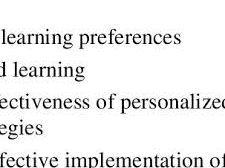Auditing is a crucial pillar of the financial world, ensuring transparency, accountability, and integrity in business operations. In the thriving metropolis of Dubai, where global finance and commerce converge, auditors play an indispensable role in upholding these values. This blog aims to provide auditors in Dubai with valuable insights, tips, and trends to excel in their profession and contribute to the financial growth of the region.
1. Understanding Dubai’s Financial Landscape: Dubai’s position as a global financial hub presents unique opportunities and challenges for auditors. Explore the city’s economic diversification, free zones, and the impact of global events on local businesses. Stay updated on regulatory changes, including those introduced by the Dubai Financial Services Authority (DFSA) and the UAE’s Federal Tax Authority.
2. Navigating Regulatory Compliance: Compliance is the cornerstone of auditing. Delve into the specific regulations that auditors in Dubai need to be well-versed in, including International Financial Reporting Standards (IFRS), local tax laws, and anti-money laundering (AML) regulations. Stay proactive in adapting to any changes in these regulations to provide accurate and compliant services to clients.
3. Advanced Auditing Techniques: Embrace innovative auditing techniques that align with Dubai’s dynamic business environment. Understand the significance of data analytics, artificial intelligence, and blockchain in enhancing audit accuracy and efficiency. Explore case studies illustrating how these technologies can transform traditional audit processes.
4. Industry-Specific Insights: Different industries thrive in Dubai, from real estate and hospitality to finance and technology. Gain a comprehensive understanding of the unique challenges and opportunities faced by each sector. Tailor your auditing approach to address specific industry requirements, risk profiles, and reporting standards.
5. Strengthening Ethical Practices: Ethics are the bedrock of auditing credibility. Examine ethical dilemmas auditors may encounter in their engagements, such as conflicts of interest and client pressure. Learn how to navigate these situations while upholding your professional integrity and the reputation of the auditing industry.
6. Enhancing Communication Skills: Auditors are not just number-crunchers; effective communication is key. Develop strong interpersonal and presentation skills to clearly communicate findings and recommendations to clients. Learn to articulate complex financial concepts in a way that is easily understandable to stakeholders from diverse backgrounds.
7. Continuous Professional Development: Dubai’s fast-paced business landscape demands auditors to be lifelong learners. Engage in continuous professional development by attending seminars, workshops, and webinars. Pursue relevant certifications, such as Certified Internal Auditor (CIA) or Certified Information Systems Auditor (CISA), to bolster your expertise.
8. Building Client Relationships: Strong client relationships are essential for long-term success. Understand the unique needs of your clients, provide tailored solutions, and demonstrate your commitment to their financial well-being. Positive client experiences lead to repeat business and referrals, contributing to your professional growth.
9. Embracing Sustainability and CSR: Sustainability and corporate social responsibility (CSR) are gaining prominence in Dubai’s business landscape. Recognize the role auditors play in assessing environmental, social, and governance (ESG) practices. Learn how to incorporate ESG considerations into your audit procedures to provide a holistic view of a company’s performance.
10. Future Trends and Adaptation: Anticipate the future trends that will shape the auditing profession in Dubai. Explore the potential impact of digitalization, regulatory advancements, and economic shifts on audit methodologies. By staying ahead of the curve, you’ll be better equipped to guide businesses through changing financial landscapes.



